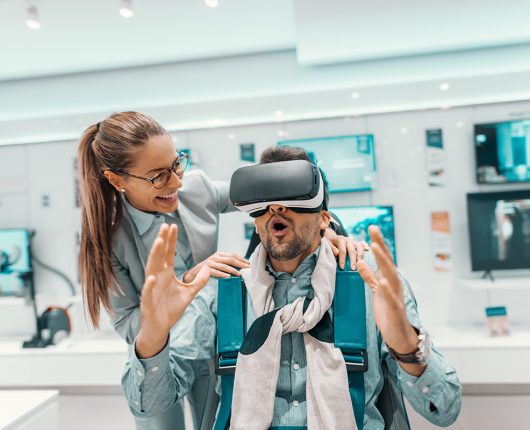In a world where competition is fierce and consumer attention spans are short, brands must find innovative ways to stand out. Experiential marketing offers a powerful solution, allowing companies to create unforgettable moments that go beyond simply selling products. This approach not only captures attention, but also builds a lasting emotional connection with consumers. In this article, we explore strategies and success stories that demonstrate how experiential marketing can transform the relationship between brands and their customers.
The impact of experiential marketing
Experiential marketing has become an indispensable tool to stand out in a saturated market. According to Puro Marketing, the key to winning over consumers is to create authentic and meaningful experiences that connect emotionally with them. This emotional connection transforms a simple interaction into a lasting memory, thus fostering customer loyalty to the brand.
Mailchimp, a leading digital marketing platform, also highlights the importance of experiential marketing. One notable example is that of ice cream company Ben & Jerry’s, which organized events where consumers could try new flavors in a festive, communal setting. These experiences not only promote the product, but also create a positive and memorable association with the brand.
Keys to designing unforgettable experiences
To create experiences that truly resonate with consumers, it’s crucial to understand their interests, wants and needs. Conducting market research and using data analytics tools can provide deep insight into your audience, allowing you to design personalized experiences that generate greater impact.
Technology plays a pivotal role in modern experiential marketing. From augmented and virtual reality to interactive apps, these tools can significantly elevate the consumer experience. For example, IKEA has used augmented reality apps to allow consumers to visualize how furniture would look in their homes, creating a more immersive and personalized shopping experience.

Creating unique and memorable events
Organizing exclusive and unique events is an excellent way to attract and retain the attention of consumers. These events can range from product launches and interactive workshops to immersive experiences that engage all the senses. The important thing is that these events reflect the brand’s values and offer something valuable and memorable to attendees.
Boosting visibility through social networks
In the age of social media, it is crucial that marketing experiences are easily shared. Encouraging the creation of user-generated content and providing engaging visuals can significantly increase brand visibility. Photogenic experiences or fun and unique activities are particularly effective for this purpose.
Evaluating the success of experiential campaigns
Finally, it is essential to measure the impact of experiential marketing campaigns to understand what worked and what did not. Using analysis tools and collecting feedback from participants can provide valuable insights to help refine future strategies.
Inspiration from successful brands
Several brands have demonstrated the power of experiential marketing through innovative and effective campaigns. In addition to Ben & Jerry’s, other companies have stood out for their unique and creative approaches. Coca-Cola, with its “Share a Coke” campaign, personalized its bottles with consumers’ names, encouraging people to seek out and share bottles with their friends and family. This campaign not only increased sales, but also created a strong emotional bond with consumers.
Another notable example is Red Bull, which with events such as Red Bull Stratos, where skydiver Felix Baumgartner jumped from the stratosphere, has positioned itself as a brand that associates its image with overcoming limits and adrenaline. This type of extreme and daring events capture the public’s imagination and create a strong link with the brand.
The future of experiential marketing
Experiential marketing will continue to evolve, adapting to new technologies and changing consumer expectations. Companies wishing to remain competitive will need to constantly innovate and find new ways to surprise and delight their audience. Based on current trends, the integration of artificial intelligence and extreme personalization are expected to be key factors in the future of experiential marketing.
In conclusion, experiential marketing is not a fad, but a solid strategy that can transform the relationship between brand and consumer. By creating authentic, meaningful and memorable experiences, companies can not only attract new customers, but also build loyalty with existing ones, turning interactions into long-term loyalty.
Study with us
For those interested in delving deeper into marketing strategies and leadership, our Master in Strategic Management with a specialty in Management is the ideal choice. This program offers comprehensive training in the skills needed to design and implement experiential marketing campaigns that truly resonate with consumers. You will learn to use advanced data analysis tools, augmented and virtual reality technology, and to organize unique events that enhance brand visibility through social networks. With a focus on creating authentic and memorable experiences, you will be prepared to lead innovative marketing strategies that transform the relationship between brands and their customers.
Sources:
Los secretos del Marketing de Experiencias de las marcas que enamoran al consumidor

